I wanted the towhee to feel comfortable in its setting, so forest floor was an obvious choice. I know better now than to even attempt a bramble tangle. That is a watercolorist's nightmare. I had found a striking ironwood trunk on one of my winter walks that would serve nicely as a backdrop for a strong vertical compositional element, one with lots of movement of its own. The concept sketch came out in a minute or two:
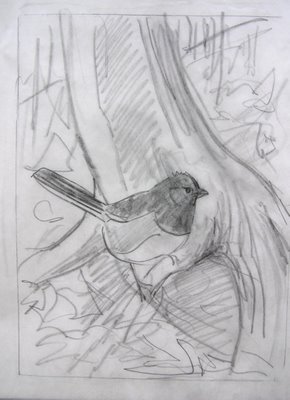
I like towhees any old way, but puffed out is a favorite pose. This is a winter scene, but it's intended to be seasonless, and really just focused on the roots and bird, rather than evoking any specific time of year.
I worked from a nice road-killed specimen (I'm licensed to handle them) and got this detailed drawing.
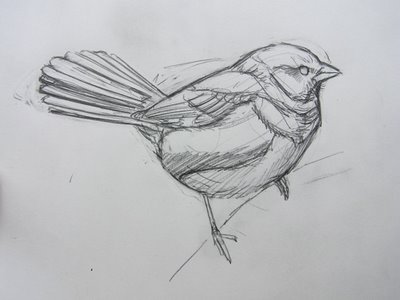 I can't tell you how much drawing nestlings all summer has helped me understand avian anatomy. I just feel how they are put together. One of the things I've always loved and tried to emulate about the late Don Eckelberry's work is the strong structural drawing he did, feeling the planes so clearly.
I can't tell you how much drawing nestlings all summer has helped me understand avian anatomy. I just feel how they are put together. One of the things I've always loved and tried to emulate about the late Don Eckelberry's work is the strong structural drawing he did, feeling the planes so clearly.The ironwood trunk and roots were handled in wet on wet watercolor, and went so quickly I didn't pause to shoot until they were all blocked in. Here's the first maybe 20 minutes of the painting.
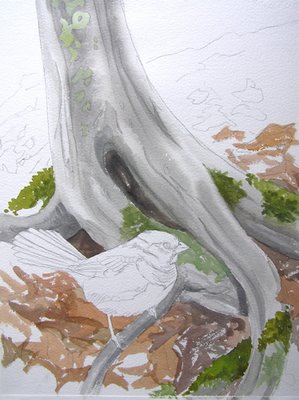
I used my KopyKake opaque projector to transfer my drawing to the watercolor paper. Made by Kobra (don't you love K's? They apparently do...), the intended use for this rather expensive but wonderful machine is to project an image down onto a cake surface so you can trace it in frosting, or something. How weird. But artists find it very useful for blowing up or reducing nice sketches or even projecting photographs to be traced and copied. David Sibley turned me on to it, and told me I'd never regret money spent on it. I've since turned my fabulous artist friend Debby Kaspari onto it, so we're all prepared to project our favorite tiny sketches, and make fancy birthday cakes, too, if the occasion presents.
Here's the second installment.
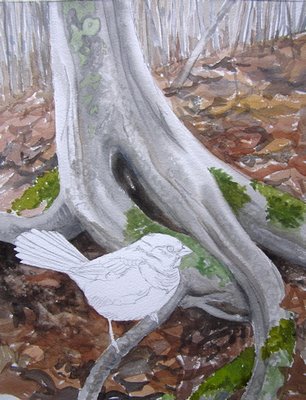 You can see that I've worked more on the roots and trunk as they dried, and begun to suggest the forest receding off in the distance. The bird is for dessert, once I've clobbered the habitat. Believe it or not, this painting was basically finished in a single day (I spent the first afternoon coming up with the concept and drawing; the entire second day painting, and most of the next morning refining). As always, painting the bird is the very least of it. Putting it in a believable setting is a way bigger challenge! To be continued.
You can see that I've worked more on the roots and trunk as they dried, and begun to suggest the forest receding off in the distance. The bird is for dessert, once I've clobbered the habitat. Believe it or not, this painting was basically finished in a single day (I spent the first afternoon coming up with the concept and drawing; the entire second day painting, and most of the next morning refining). As always, painting the bird is the very least of it. Putting it in a believable setting is a way bigger challenge! To be continued.
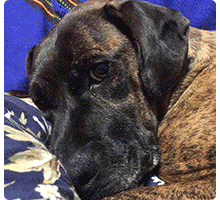
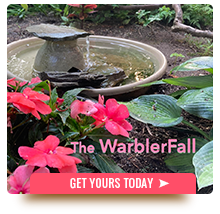
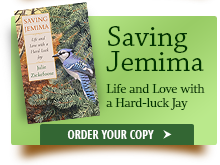
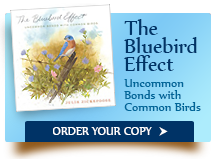
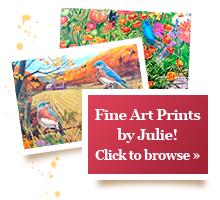
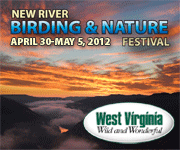
0 comments:
Post a Comment